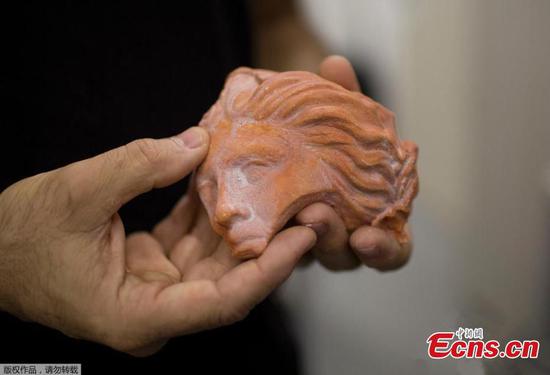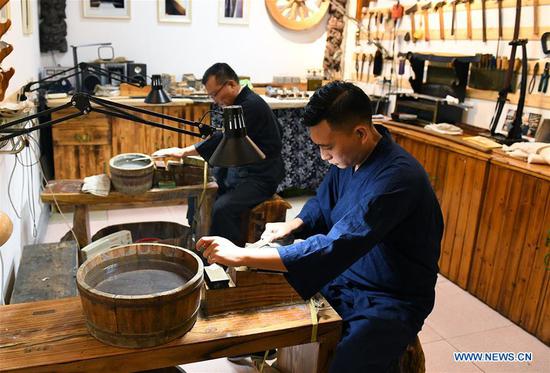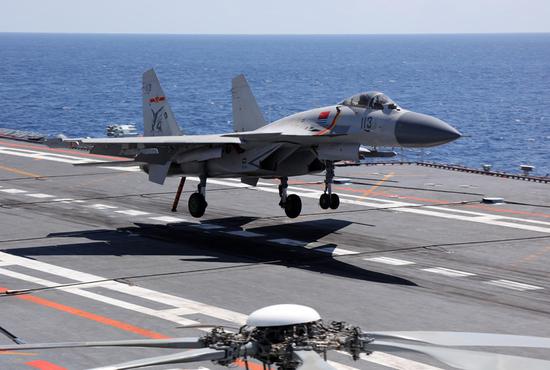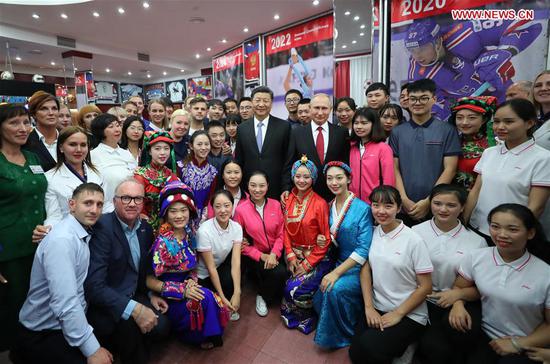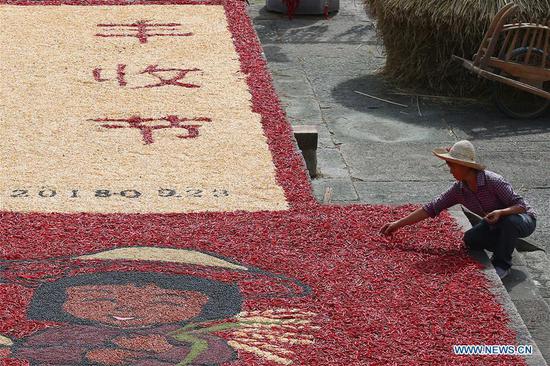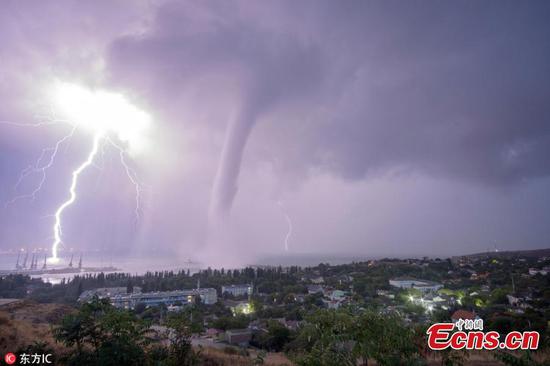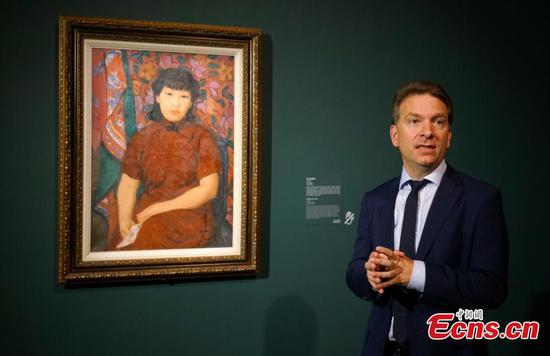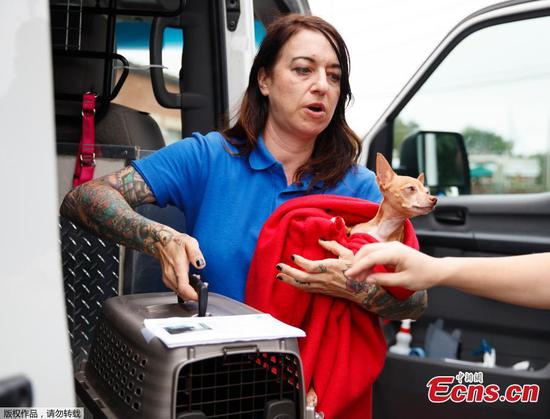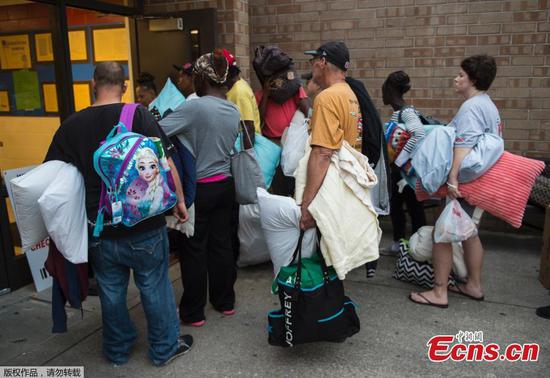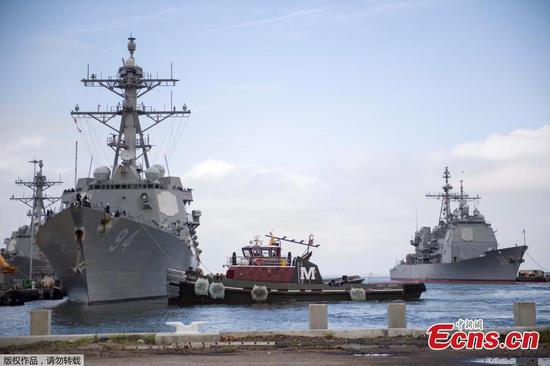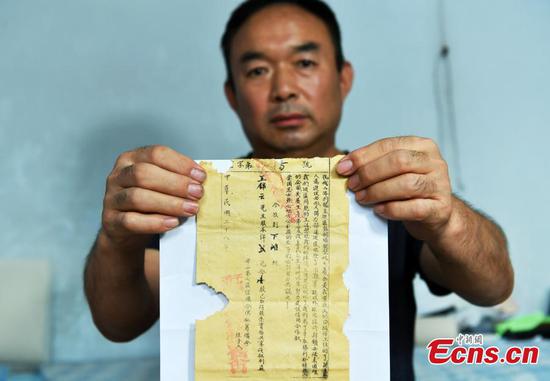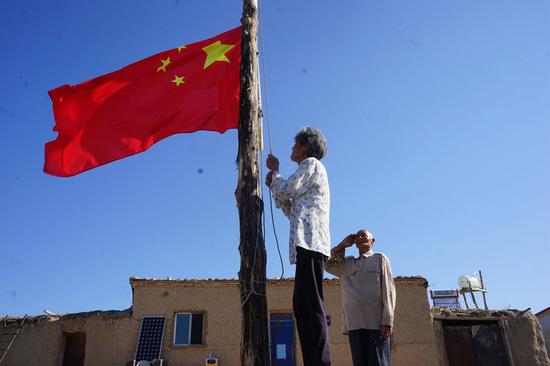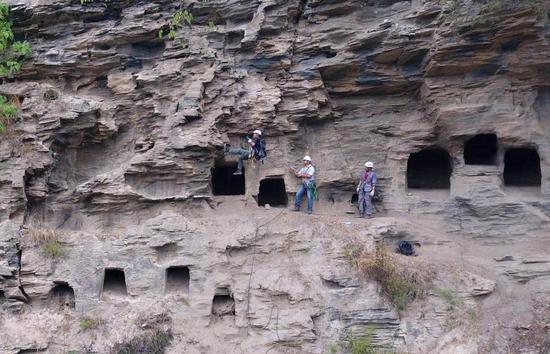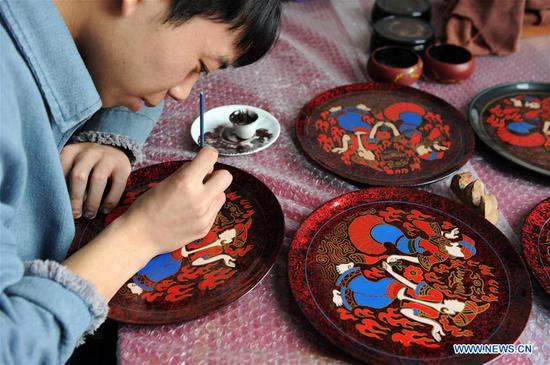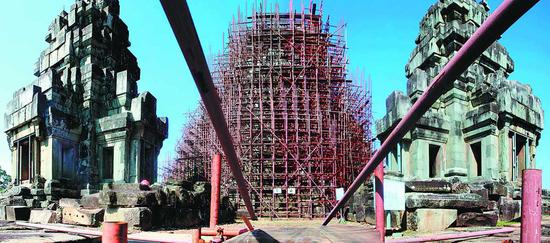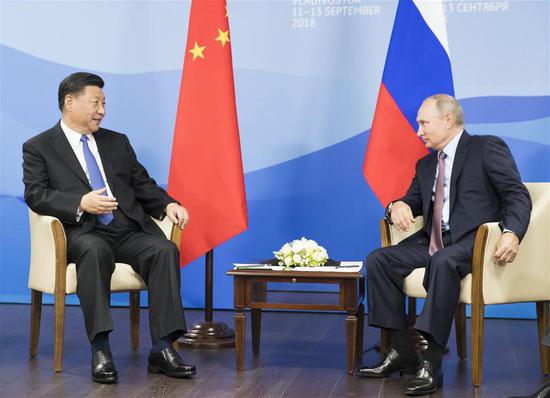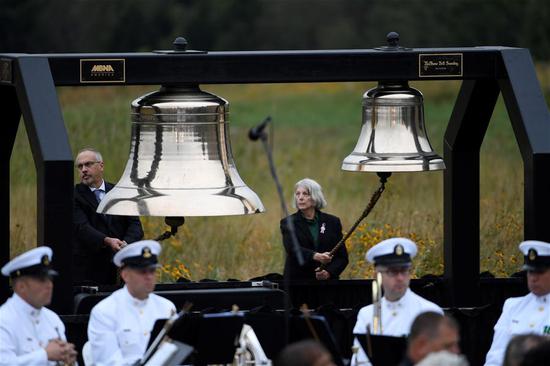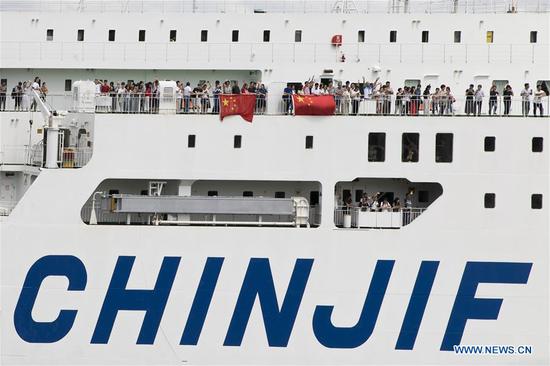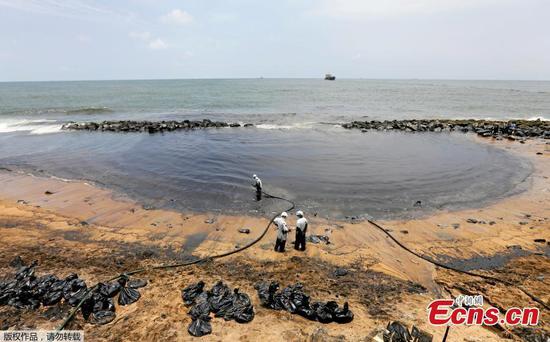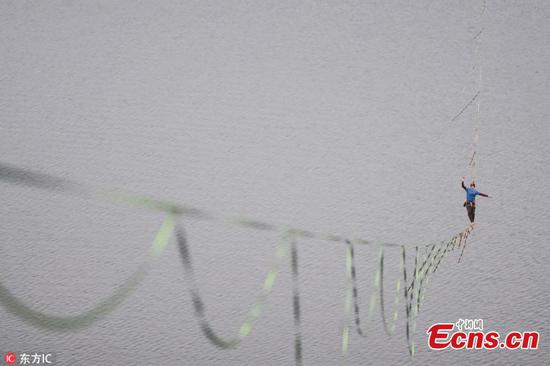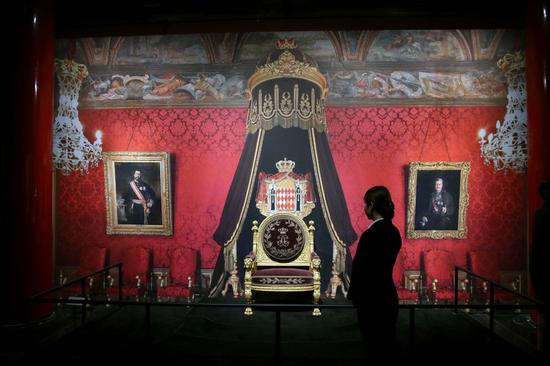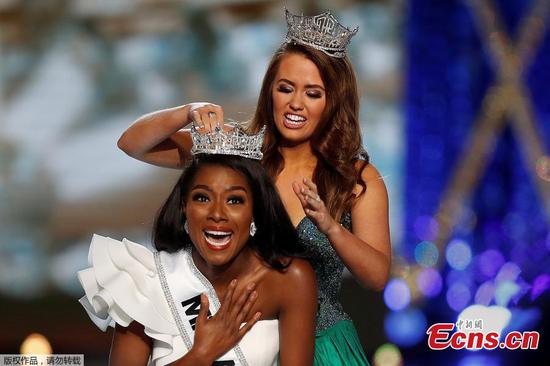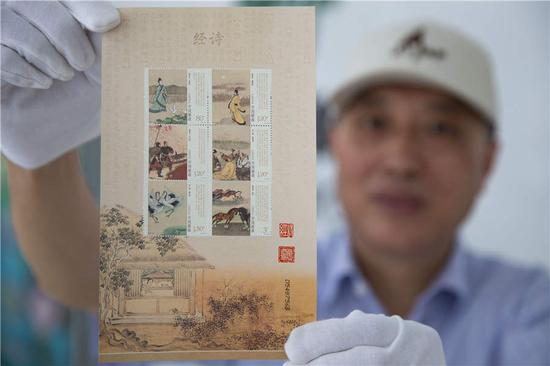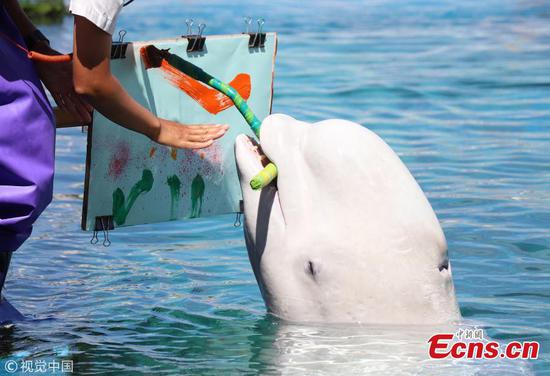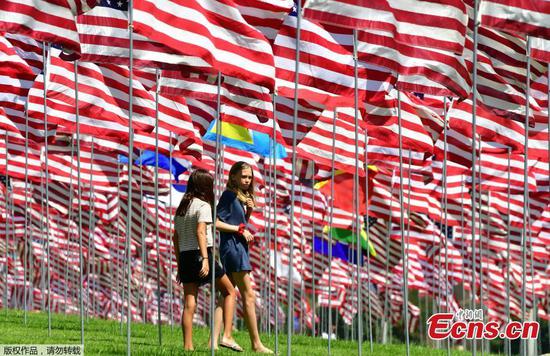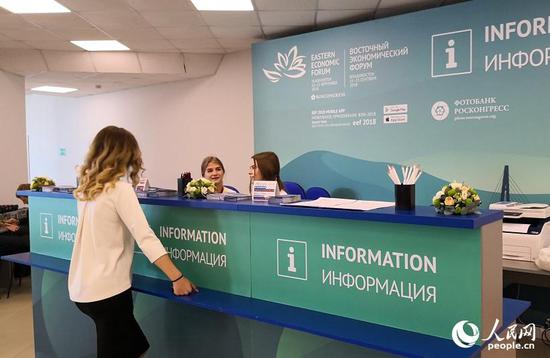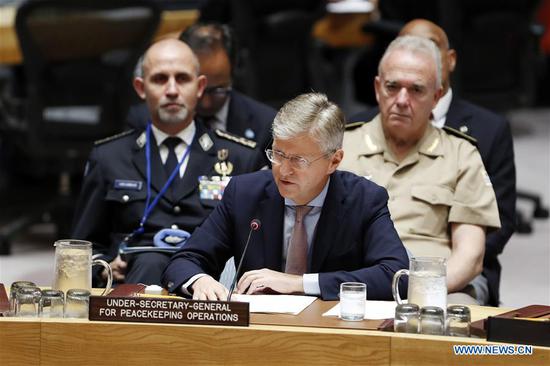
UN Under-Secretary-General for Peacekeeping Operations Jean-Pierre Lacroix (Front) briefs the Security Council during an open debate on peacekeeping operations at the UN headquarters in New York, on Sept. 12, 2018. UN Under-Secretary-General for Peacekeeping Operations Jean-Pierre Lacroix on Wednesday urged member states to contribute more troops and police to UN peacekeeping. (Xinhua/Li Muzi)
UN Under-Secretary-General for Peacekeeping Operations Jean-Pierre Lacroix on Wednesday urged member states to contribute more troops and police to UN peacekeeping.
"I would also like to take this opportunity to call on all member states, particularly those with the most advanced military capabilities, to contribute more troops and police to UN peacekeeping," Lacroix said at a UN Security Council open debate on peacekeeping operations.
"We still have an ongoing need for critical capabilities, including helicopters, counter-IED capacities, rapid reaction forces, situational awareness, and medical support," he said, noting that "we welcome all contributions in these areas."
Speaking of the importance of women in UN peacekeeping operations, Lacroix noted that "the engagement of member states is also key to increase the number of women who are part of peacekeeping."
"More women in peacekeeping simply makes peacekeeping more effective. We need to significantly enhance the number of female peacekeepers at all levels and within uniformed as well as civilian components. We must also ensure that they are able to meaningfully participate in our work," said the UN peacekeeping chief.
"Women are only 21 percent of our personnel. We must do better," Lacroix noted.
However, he said, with hard work, "we have seen some improvements."
"Gender strategies for DPKO (Department of Peacekeeping Operations) and DFS (Department of Field Support) as well as within each of our missions, and the Uniformed Gender Parity Strategy, are starting to yield results," he said.
"At headquarters, women officers now represent 18 percent of all officers in the Office of Military Affairs, and we are committed to raising this proportion further. In the field, women police officers represent 21 percent of our Individual Police Officers, and 7 percent of our Formed Police Units."
"We intend to continue our efforts to increase the number of female peacekeepers in headquarters and in the field, in line with Security Council Resolution 2242," Lacroix noted.
"The policies that we have promoted can only be achieved through the active involvement of members states. I therefore welcome the efforts undertaken by a number of member states, and I call on all of you to further these initiatives and significantly increase your contributions of women peacekeepers," he noted.
In his briefing, Lacroix outlined steps taken by the UN and the results yielded. One of the key areas includes assessing peacekeepers' performance.
"We are putting in place the policies and evaluation systems that will enable all of us, collectively, to better tailor our efforts to strengthen peacekeeping and better support all peacekeepers, whether uniformed or civilian," he informed the 15-member Council.
The engagement and the mobilization of all stakeholders, and, especially member states, is vital for achieving success, underscored the UN peacekeeping chief.
In particular, he called on all member states "to assess the evolution of the performance of UN peacekeeping operations," including through visiting them on the ground and sharing their findings with the UN.
Concluding his briefing, he highlighted the importance of strong partnership with civil society groups, particularly in the on-going effort to prevent sexual exploitation and abuse by UN personnel, as well as ensuring accountability and victim support.
In that context, he also urged troop contributing countries to complete investigations into allegations of wrongdoing within six months, the timeframe for UN investors to complete their work.
"Only by working together will the UN, member states and civil society end this behavior which irreparably harms victims and tarnishes the reputation of thousands of UN personnel who serve with honor," he said.
Speaking alongside Lacroix, Sarah Blakemore, CEO of the non-governmental organization Keeping Children Safe, called for strong protection systems to stop abuse from happening and, should it occur, to ensure that victims are protected and supported, and bring perpetrators to justice.
"Too often victims have no way of reporting the abuse, no medical or psychosocial care and no access to justice," she said.
"We call on world leaders to champion the safety of children at the highest levels by requiring that all organizations involved in peacekeeping implement robust international child safeguarding standards, including having advocates for victims' rights."
In March, UN Secretary-General Antonio Guterres launched the Action for Peacekeeping (A4P), to strengthen global political commitment to peacekeeping operations.
He also called on member states to join him in developing a set of mutually-agreed principles and commitments to create peacekeeping operations fit for the future, with the goal of reaching a formal agreement by the end of the year.
Specific efforts include the Declaration of Shared Commitments, which has been endorsed by 55 nations as of Sept. 11 as well as thematic consultations on peacebuilding, performance, protection of civilians, partnerships, and political dimensions, such as peace operation mandate and resources, role of the Security Council.
UN Resolution 2378, which was adopted on Sept. 20, 2017, requested the secretary-general to deliver a comprehensive annual briefing on the reform of UN peacekeeping to begin within one year of the adoption of the resolution, followed by a debate.
Lacroix's briefing at the debate, which was mostly about peacekeeping reform, provided an opportunity to discuss some of the reform efforts undertaken in the past year by the secretary-general, including on management and the peace and security architecture, as well as an initial assessment of several independent reviews of peacekeeping operations carried out at the initiative of the Council or the Secretariat.









